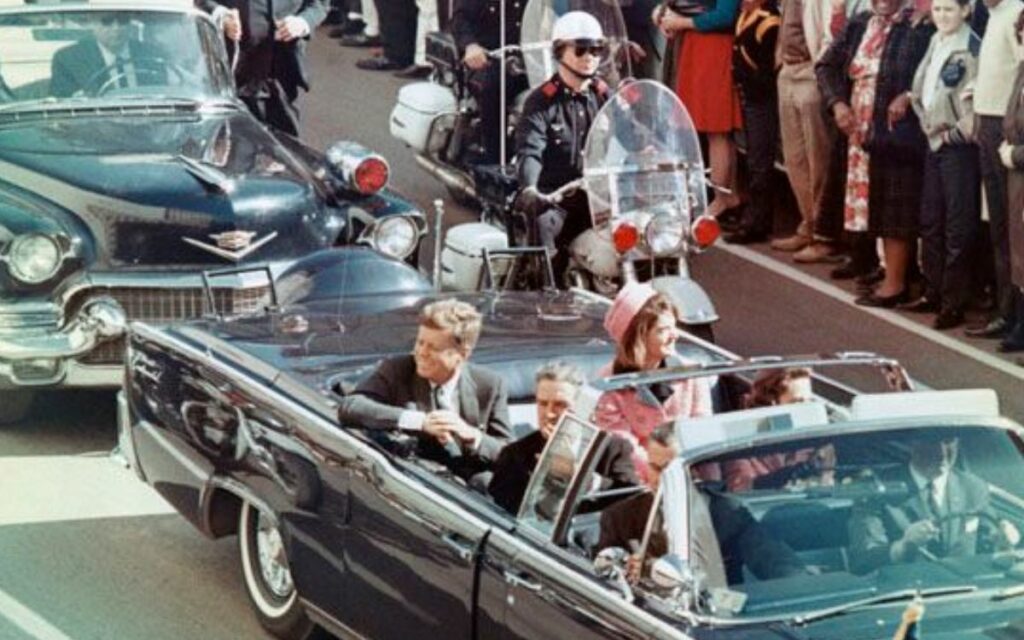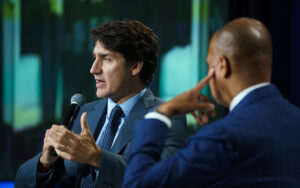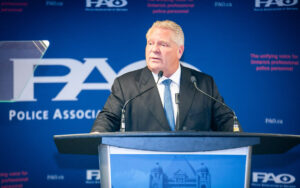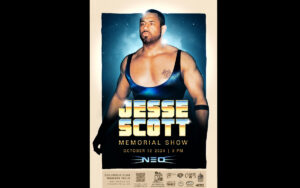
JFK’s assassination remembered after six decades: A look back at the pivotal moment that shaped America’s trajectory. Photo: Facebook/Encyclopaedia Britannica
On Nov 22, Americans marked the sixtieth anniversary of the most shocking moment of the last hundred years. In Dallas, shortly after noon, on a sunlit day, the 35th president was murdered in front of his wife while thousands watched. Having had all these decades to absorb the loss and contemplate the meaning of Kennedy’s life and death, I felt it worthy to take some time to reflect on the man and what his loss meant to America and a world that grieved for several days afterwards.
When the bullets that extinguished Camelot (the literary reference that defined the Kennedy era) struck, America sat ready to conquer space, confront the Soviet Union, and face down racism, its own greatest internal enemy. Kennedy had challenged Americans to put a man on the moon earlier that fateful year, had entered into negotiations with the Soviets to reduce nuclear weapons, and was piecing together legislation that he hoped would make America whole, ensuring that all its citizens had their rights protected, guaranteed, and legislatively entrenched. His death that day in Dallas altered America’s future, the world’s trajectory, and even individual lives. What Kennedy represented to so many died that day in Dallas, and America never fully recovered.
The Space program, dedicated to his memory, answered his challenge and put Neil Armstrong on the moon before the 1960s expired. The fact that millions enjoyed that moment did not minimize the fact that Kennedy, the inspiration for the effort, had not lived to see the triumph, a uniquely American accomplishment. Where else might his vision have taken American ingenuity? His youthful and playful spirit seemed to match America’s national attitude. Taking risks, reaching for the stars, and believing that anything was possible because the USA possessed an exceptional ethos seemed to align Kenndy with the nation he led. The loss that day could not be measured until years later when the country abandoned its dreams, turned on itself and decided that those who hated America deserved to hold its highest offices and work to undo its history, influence, and position as mankind’s last best hope.
When he died, Kennedy visited Dallas to close any divides between the Southern Democratic constituency and himself. The South remained resistant to most of the civil rights laws his administration was contemplating. He had no desire to see floor demonstrations at the 1964 Democratic Convention that would provide fodder for his Republican opponent. Kennedy’s popularity assured his renomination and re-election looked likely, but the president wanted a strong mandate. He planned on proposing legislation that would require overwhelming numbers. His last campaign was to be a crusade, and if that meant going to unfriendly towns, facing challenging crowds, or even risking his safety, JFK always prepared to give his full measure. His team knew there were dangers, but he wanted to interact, and the welcome at Love Field Airport, the beauty of the sky, and the adoring crowds dictated a perfect political moment. As a generational political athlete of enormous talent, Kennedy wanted to maximize the moment. The open-air limousine drove into Dealy Plaza, where world history unexpectedly shifted.
Trying to make sense of the assassination or compute what would have happened if Oswald had not fired the gun from the depository remains a fool’s errand. Kennedy would have likely won in 1964, though not as massively as LBJ, who used the memory of JFK to hammer Barry Goldwater as an extremist. The speculation after that gets interesting. What about Vietnam, the Civil Rights Movement, and his successor?
Vietnam presents a vortex of possibilities. Kennedy may have travelled down the same hole that drove LBJ into early retirement. If he had learned from the Bay of Pigs and the Cuban Missile Crisis, he would have rejected a lot of intelligence advice and charted his own course. The CIA, however, tends to become very determined about their findings and agenda. If they want something done, they play dirty. There are many in and out of government who believe that Kennedy’s murder lay at the feet of the CIA. Tucker Carlson rings this like the Liberty Bell on his programs. According to Carlson, Kennedy’s assassination undisputedly ranks as an inside job. I remain unconvinced and have watched snipers fire from the sixth floor of the Book Depository where Lee Harvey Oswald stood. Even an 89-year-old marksman could have taken out Kennedy in the time allotted, as shown in a 2003 ABC Special marking the fortieth anniversary of the event. The desire for a grand conspiracy to explain the murder of a beloved president may appeal to those who want an explanation for the murder of the top member of the federal government. It fails to overwhelm the evidence that Oswald simply wanted to be famous, and murdering Kennedy brought him the notoriety he so desperately sought. JFK may have frustrated the CIA and provided support for Vietnam, but not troops. But his Inaugural speech suggested otherwise when he said America would bear any burden. As a Cold Warrior, Kennedy would likely have still fought the Vietnam War, maybe differently, perhaps with altered results, but American boys would have died in Southeast Asia, and the protestors outside the White House in the late 1960s might have been shouting, “Hey, Hey, JFK! How many kids did you kill today?”
As for the Civil Rights Movement, it may have incrementally occurred at a slower pace. The landmark legislation passed in his memory would not have gained sweeping approval if JFK had lived. Using the Democrats’ strong majorities in both Congress and the Senate, a deliberate effort to turn the proposals into law would have eventually occurred. Martin Luther King, Jr. would have been in his ear demanding more and insisting it happen faster. While fighting a war, trying to ensure the economy grew ( a JFK trait), and managing Civil Rights expectations, Kennedy would likely have experienced some of the frustration LBJ endured into the latter part of the second term. Figuring out who would have replaced him as Democratic leader for the 1968 election and as President in January 1969 serves as a parlour game at best.
The best guess I can make after reading several books about the era, having thought about the matter for decades, and studied American politics for half a century may or may not surprise anyone. I believe LBJ would have run and probably taken the Democratic nomination. In a race against Richard Nixon, I think Nixon’s Southern strategy would have worked, checkmating history and bringing us most of what happened regardless of whether Kennedy survived or not. The only wildcard in the mix relies on Bobby Kennedy’s trajectory. If he had not run in 1968, he may have in 1972 or 1976. That could have scrambled history and turned everything upside down. Those butterfly effects are too hard to project, leading us down a Pandora’s Box of endless speculations. Suffice it to say that JFK’s death certainly affected specific aspects of American life. I think many have exaggerated that outcome, and his death most impacted his family. They lost a husband, father, son, brother, uncle and potentially decades of his warm companionship. The nation lost a leader. A natural successor followed. His family could never replace his empty chair.

Dave Redekop is a retired elementary resource teacher who worked part-time at the St. Catharines Courthouse as a Registrar until being appointed Executive Director at Redeemer Bible Church in October 2023. He has worked on political campaigns since high school and attended university in South Carolina for five years, earning a Master’s in American History with a specialization in Civil Rights. Dave loves reading biographies.




















